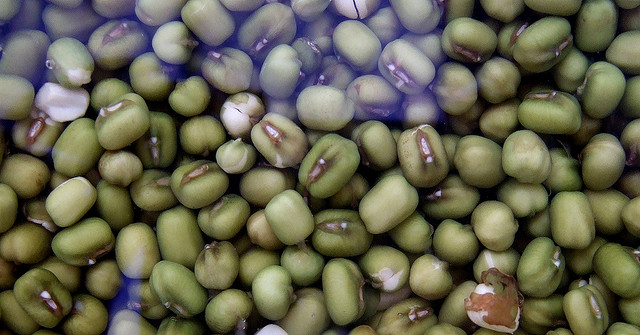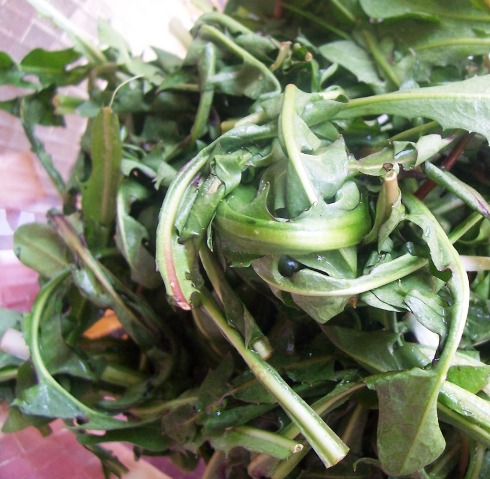Huge, but Easy Step Towards a Nourishing Diet: Stick with Traditional Fats, Part Two
The other day we talked about how saturated fat is not the villain it was made out to be, in fact it can be beneficial to your health. Today let’s take a look at some more traditional fats and why to avoid the more modern ones.
Coconut Oil
Coconut oil has been around for thousands of years, and the coconut itself a mainstay of many south pacific countries. There is a lot of research out there touting the benefits of coconut oil, so why has it been demonized for so many years? For the same reasons as butter – Ancel Keys threw out the lipid hypothesis and the vegetable oil industry pounced on it, conducted some not so scientific research involving hydrogenated coconut oil which they then called conclusive. They went on to conduct a smear campaign against what was then (in the 1960s) one of the most useful and beloved fats – palm and coconut oil. (source)
It seems as though the tide may be turning, however. While the American Heart Association still puts forth antiquated (and wrong) theories about avoiding saturated fat in favor of poly- and mono-unsaturates, many people are enjoying the health benefits of coconut oil, including it’s immune, thyroid, and metabolic-boosting properties.
Lard & Beef Tallow
In the days that our country was an agrarian one, many families had their own pig or cow which they would butcher in the late fall in order to provide their family with meat and fat for the coming winter. My father tells me that my grandmother had a tub of lard on hand at all times when he was a child. Sadly where the lard once sat you can now find crisco, an example of what some call "the oiling of America."
Sadly, the smearing of lard and tallow happened around the same time as the other traditional fats. Crisco was invented in 1911 as a less-expensive alternative to animal fats and butter. Interestingly enough, just 30 years earlier they were selling lard. The only way they could sell this product was to convince homemakers that the fats that they had fed their families for generations (and avoided most disease with) were actually bad for them. (see the history of crisco for more interesting facts.)
It is hard for us to understand that this was the beginning of the industrialization of food. Up to this point most food was locally produced. One didn’t have the facilities to make corn, soy, or canola oils, so they weren’t trusted (and shouldn’t be today). Many were quite skeptical of Crisco and vegetable oils. But the marketing firms were able to take advantage of their cheaper product and the lipid hypothesis and convince people that what they could grow in their own back yard is not as healthy as something they could buy off of a shelf. It is sad, really.
What About Canola?
Most people can agree that corn, soy, and cottonseed oils should be avoided. But what about canola – the most recommended fat on the market, only 30 years old in this country? It seems like a good idea to avoid this vegetable oil at all costs as well. Not because it isn’t a traditional food, it actually has been used in India, China, and Japan for thousands of years, but…
In areas where there is a selenium deficiency, use of rapeseed oil has been associated with a high incidence of fibrotic lesions of the heart, called Keshan’s disease.
That wouldn’t normally be enough to turn me off, but the processing of canola is a disaster:
The oil is removed by a combination of high temperature mechanical pressing and solvent extraction. Traces of the solvent (usually hexane) remain in the oil, even after considerable refining. Like all modern vegetable oils, canola oil goes through the process of caustic refining, bleaching and degumming–all of which involve high temperatures or chemicals of questionable safety. And because canola oil is high in omega-3 fatty acids, which easily become rancid and foul-smelling when subjected to oxygen and high temperatures, it must be deodorized.
Not only that, but it was the first oil to be created through genetic manipulation and…
Herbicide-resistant GMO canola now comprises a large portion of the total canola crop. (source)
Benefits of Avoiding Vegetable Oils Completely
For quite some time I had been eating butter and coconut oil, but had still been taking in canola, soy, corn, and other vegetable oils when I turned to any processed food such as salad dressing off of a salad bar or a roast chicken from the grocery store. For the most part it is difficult to avoid vegetable oils as long as you are eating out. But if you prepare your own foods from scratch it can be done.
I can not emphasize enough the benefits I have seen when I cut out all vegetable oils (save cold-pressed olive or sesame) while using liberal amounts of traditional fats. And I mean liberal. My energy has improved, weight management has become easier, my moods, skin, and hair have all gotten better.
Finally, vegetable oils are not something one would consume if they were growing their own food. Butter? yes. Lard? yes. Corn oil that can only be pressed by giant stainless steel presses? Probably not.
That wraps up part one of what I view as the most important change that you can make to your diet. I have more easy steps that can drastically improve your health coming up.
What are your thoughts on traditional fats, vegetable oils, and the importance of both?




Thanks for this series on Fat, very informative.
great post Shannon. Pass the butter!
We’ve been making this transition for awhile now. My son has severely high antibodies to coconut oil. So I had been looking for an alterative for baking. I have found that ghee, cold enough to spread works great. If I ever get a chance to render some fat I think it will be worth a try. Our biggest issue now is that husband makes great fried fish and squash chips and uses oil. Any ideas on what to use instead?
We’ve been making this transition for awhile now. My son has severely high antibodies to coconut. So I had been looking for an alterative for baking. I have found that ghee, cold enough to spread works great. If I ever get a chance to render some fat I think it will be worth a try. Our biggest issue now is that husband makes great fried fish and squash chips and uses oil. Any ideas on what to use instead?
mmmm butter! Would you say that you should count calories, or watch the amount of good fats that you are taking in, or just eat as much butter and coconut oil that you want? I personally have been eating this way for a year, and am too lazy to worry about calories. I eat as much good oil as I want, and have gained zero pounds.
Tracee, I would try goose fat. It will be an expensive initial investment if you are filling up a deep fat fryer, but the food coming out of your kitchen will be amazing. Especially pototaoes.
What do you think about rice bran oil? It’s the next big thing because it has a high temperature resistance. My first reaction was to avoid it because it’s not, as you say, something you would make yourself. I have been reading the bottles at the supermarket and it seems that there are two methods of processing, one creates trans fats and one does not (at least not in quantities large enough to label). I’m wondering if the kind with no trans fats is still dangerous. It is always possible that the processing is more gentle and that the oil is less damaged, although it is equally possible that the processing is damaging the oil in another way that we haven’t developed a test for yet.
Isa – I think the only way I would use it is if it is cold-pressed and then kept refrigerated. Rice bran is notorious for going rancid – that is why you can store white rice indefinitely, but brown rice has a shelf life. Think of it like flax oil
I think traditional fats should be promoted so people would know the truth but at the time, people should also use them cautiously. They also have a wrong idea that substituting it with something that is made from the factory is healthier. There’s a saying that “I trust cows more than scientist.” I don’t use vegetable oil that much in my cooking as they are overly processed. Coconut oil is definitely one of my favorite oils to cook with.
Can anyone tell me where to find lard? Is it sold in grocery stores? Perhaps Whole Foods?
I developed an aversion to margerine about the same time I started refusing to eat or drink anything that said, “diet”, “low-cal”, or otherwise appeared to me not to be food at all. It was awfully gratifying to learn later that the hunch was on the right track.
A while back, I went cold turkey on soy (my family drinks soy milk) and all vegetable oil. I only used coconut oil for my own cooking. I dropped about five pounds in three days! It was hard to maintain, because the coconut oil i had been using tasted and smelled like coconut, which isn’t the smell i want in my house.
Now that i’ve found an unscented brand of coconut oil, i’m trying to go back to this.